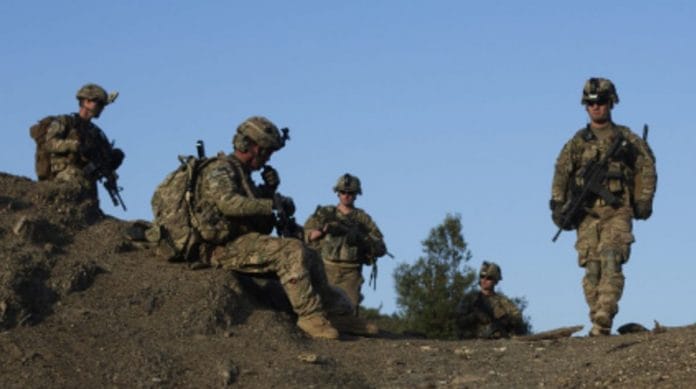The fall of Afghanistan to the Taliban was two decades in the making, and has potentially profound implications for the United States, the region, and the world.
One of the persistent challenges of US involvement in Afghanistan over the past two decades has been a lack of a unifying strategic objective. While the immediate goal of the US invasion in 2001 was the removal of al-Qaeda, the mission evolved over time. Some policymakers wanted ‘nation-building’ – creating democratic institutions and the economic context necessary for democracy to take root. Others felt that the US had a larger calling to reform civil society, combat corruption, overcome tribalism, and promote education and women’s rights. Still others, notably the neoconservatives in the Bush administration, saw an opportunity to stabilise the region by creating democracies in both Iraq and Afghanistan.
With shifting goals came shifting measures of success. How many Taliban-controlled villages have been pacified? How many electrical generators have been purchased? How many school-age girls are now getting an education? How many voters turned out for parliamentary elections? Unfortunately, as we now know from the Afghanistan Papers (reporting done by The Washington Post in 2019), both political and military leadership grew accustomed to hyping these metrics, glossing over shortcomings, and blithely moving forward, month after month until the next troop rotation. There were some in every administration who questioned the war, but their voices did not prevail.
Meanwhile, the Taliban waited patiently, rebuilding their strength. Their offensive revealed the weakness of the Afghan military. Without American airpower, the Afghans simply did not have the resources to fight well. Worse, our assessment of the size and willpower of the military was wrong, all the way down to misunderstanding the willpower of Afghan soldiers. Military planners warned that the Taliban might sweep the country rapidly, but President Joe Biden overruled them. Nobody could have been genuinely surprised at the rapid military reversal.
Also Read: Did India rely too much on US? Taliban siege of Kabul is affecting our regional power status
Consequences for the US
The consequences of the fall of Afghanistan for the United States will be varied. Our stature in the world will be taken down a peg, and our allies in Asia and in Europe will justifiably question whether we are a reliable partner. Russia may be emboldened in its near abroad, especially in Ukraine. China may decide that its planned invasion of Taiwan can move forward apace, as the US may not follow through on its commitment to the island’s defence. The Biden administration has argued that a strategic reorientation towards China and Russia was necessary, and they may be right. But the message to our allies is caveat emptor.
At the same time, the US has learned that open-ended commitments and efforts at nation-building are dangerous and costly. Current and future presidents of the United States are unlikely to get the domestic support they need for any new adventures abroad in the foreseeable future.
Another consequence for the US – and for the world – is the possible resumption of large-scale terrorist attacks. The Taliban and their terrorist kindred will celebrate the perceived defeat of America, and be emboldened. There are already perhaps 20 terrorist groups, along with al-Qaeda, who are training in Afghanistan or who have participated in the recent offensive. Those groups have varying objectives, but al-Qaeda and the remnants of ISIS have not given up the fight against the “Great Satan.” It may take years for the plans to come together (the operation on 9/11 was likely conceived at least six years earlier) but we should have our eyes wide open to the re-emergent threat.
Also Read: How Taliban’s takeover of Afghanistan puts China in $282 billion creditor trap
Questions about China and Pakistan
Chinese President Xi Jinping will try to get maximum propaganda advantage from the US withdrawal, warning that the United States is not a good long-term ally or a defender of human rights. At the same time, China cannot be happy at the images of a successful Muslim rebellion, given their own fractious relationship with their Muslim minorities. For now, however, Xi may be content to maintain positive relations with the Taliban, because they could become another node in the Belt and Road Initiative as it encircles South Asia.
The Taliban victory raises different questions for the Imran Khan government in Pakistan. The role of the Pakistani intelligence services in creating and supporting the Taliban is well-known, but the Pakistani Taliban is a destabilising influence at home. Any move by Karachi to align with the new Taliban regime may finally tip the US-Pakistani relationship over from tense into antagonistic, and may accelerate the US to continue its realignment towards India.
Some will agree with President Biden that the US had no choice but to finally pack up and leave Afghanistan. It may never have been a winnable war or a winnable peace, though there will be a great deal of agonised reflection over what went wrong. We promised ourselves in 2001 that we would “always remember” 9/11 and that we would not get caught in another Vietnam-like quagmire. We were wrong on both accounts, and the Afghan people are now reaping the whirlwind.
Dr Tom Copeland is Director of Research at the Centennial Institute and Professor of Politics at Colorado Christian University. He is the author of ‘Fool Me Twice: Intelligence Failures and Mass Casualty Terrorism’. Views are personal.
(Edited by Srinjoy Dey)






